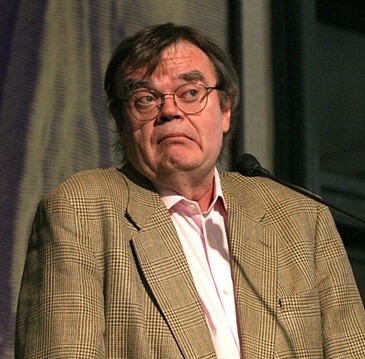Thursday, March 15, 2012
Opinion Public Radio: What's with the stupid promos during pledge week?
Posted By Mark Kemp on Thu, Mar 15, 2012 at 8:38 AM
We love public radio here at CL and we understand and support the pledge drives that stations like WFAE in Charlotte do each year. In fact, we encourage any public radio listener to pledge and pledge liberally.
However, some of the promos that public radio airs during pledge week make us cringe.
To wit: This morning, a smart-sounding public radio voice asked WFAE listeners, "Would you rather hear this (cue in a few metal guitar riffs) or this (cue in yawn-inducing music followed by Garrison Keillor welcoming folks to Lake Wobegon)?" The subtext for anyone under 50 is, "Would you rather hear energy on your radio station or the latest ambient collection Music for Geriatric Units?
The truth is, public radio is hardly the boring, yawn-inducing format that it was only a few years ago. When you check out NPR's music site, you find exciting, eclectic and adventurous features like "No Sleep Till Mexico City," hosts Jasmine Garsd and Felix Contreras' road trip to two big music events going on right now: the South By Southwest Music Conference in Austin, Tex., and Vive Latino in Mexico City. You'll find everything from a "First Listen" to the latest disc by Raleigh's Lost in the Trees to an exciting jazz-hip-hop fusion "Song of the Day" by one of the more adventurous current West Coast rappers, Kendrick Lamar.
And all of that doesn't even include the mix of smartly reported news, analysis, cultural reports and other stuff that public radio offers. So... what's up with trying to tune out and turn off listeners who'd like to hear a little energy on the radio? Those promos may have been right for an earlier era of public radio, but they're misguided for a public radio that's taken great strides in staying current and offering challenging, mind-opening new features over the past few years.
Psst, NPR: If you want to continue changing perceptions of public radio, change your promo staff.
Speaking of...
Comments (3)
Showing 1-3 of 3













